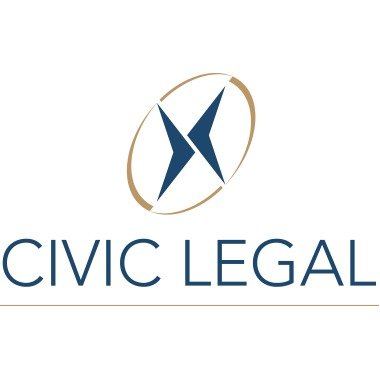Best Natural Resources Lawyers in Perth
Share your needs with us, get contacted by law firms.
Free. Takes 2 min.
List of the best lawyers in Perth, Australia
About Natural Resources Law in Perth, Australia
Natural Resources Law in Perth encompasses legal issues related to the management, conservation, and usage of natural resources such as minerals, water, land, and renewable energy sources. Given Perth's rich mineral resources and its strategic location in Western Australia, the region has a significant prominence in mining activities, contributing substantially to Australia's economy. Laws in this sector aim to balance resource development with environmental protection, addressing issues like land rights, environmental impacts, and the sustainable utilization of resources.
Why You May Need a Lawyer
There are many scenarios where individuals or companies might require legal assistance in the realm of natural resources, including:
- Navigating the complexities of obtaining mining, water, or land use permits.
- Understanding regulations regarding resource exploration and extraction.
- Disputes over land ownership or resource rights.
- Litigation arising from environmental damage or breaches of compliance with regulations.
- Assistance with contracts related to renewable energy projects.
- Advisory services for compliance with environmental protection laws.
Local Laws Overview
Western Australia's legal framework for natural resources consists of various statutes and regulations, including:
- Mining Act 1978: Governs the extraction of mineral resources, addressing licensing and responsibilities for mining operations.
- Environmental Protection Act 1986: Focuses on the prevention and management of environmental impacts in resource extraction activities.
- Water Services Act 2012: Regulates the distribution and usage of water resources to ensure sustainable management.
- Native Title Act 1993: Recognizes and protects native title rights, affecting access to land for resource exploration and extraction.
Understanding these laws is crucial for compliance and responsible management of natural resources.
Frequently Asked Questions
1. What are natural resources?
Natural resources include materials and components found in nature such as minerals, water, land, and solar energy that are used for economic gain or sustenance.
2. Do I need a license to explore for minerals in Perth?
Yes, exploration activities typically require licenses or permits, which are regulated by state laws to ensure responsible exploration and minimize environmental impact.
3. How does environmental law interact with natural resource projects?
Environmental laws ensure that resource projects comply with standards aimed at minimizing ecological damage and maintaining biodiversity, balancing development with conservation.
4. What is native title, and how does it impact resource management?
Native title refers to traditional rights recognized by Australian law that allow Indigenous groups to manage land and resources, impacting access and development activities.
5. Who regulates water usage in Western Australia?
The Department of Water and Environmental Regulation oversees water resource management, balancing allocations between ecological needs and human use.
6. How can a natural resources lawyer help my business?
A lawyer can assist in navigating legal compliance, securing permits, drafting contracts, and advising on risk management associated with resource-based operations.
7. Are there legal incentives for using renewable energy sources?
Yes, various laws and policies offer incentives such as grants and tax benefits for using or investing in renewable energy projects, promoting sustainability.
8. Can I appeal a decision denying me a resource extraction permit?
Yes, there are legal procedures to appeal regulatory decisions, typically requiring the submission of detailed reasoning and evidence to support your case.
9. What should I do if facing an environmental compliance issue?
Engage with a lawyer specializing in environmental law to help address the issue, navigate legal responsibilities, and find a resolution that meets regulatory requirements.
10. How do resource laws evolve over time?
Resource laws evolve through legislative amendments, reflecting changes in societal priorities, technological advances, and new scientific insights into environmental protection.
Additional Resources
Here are some resources and organizations that can assist those seeking further information or help:
- The Department of Mines, Industry Regulation and Safety (DMIRS)
- The Department of Water and Environmental Regulation (DWER)
- The Environmental Defenders Office (EDO)
- WA Indigenous Land Use Agreement database
- Sustainable Energy Association of Australia
Next Steps
If you require legal assistance regarding natural resources, consider the following steps:
- Gather all relevant documents about your situation, including permits, contracts, or official correspondence.
- Identify core issues where you need legal advice or representation.
- Seek consultations with lawyers specializing in natural resources, ideally with experience in Perth's local laws and regulations.
- Discuss your case, exploring your legal options, potential risks, and the best course of action.
- Follow the advice of your legal consultant to initiate the necessary legal or procedural actions.
Legal matters in natural resource management can be complex, and securing professional guidance is advisable to ensure compliance and effective resolution of issues.
Lawzana helps you find the best lawyers and law firms in Perth through a curated and pre-screened list of qualified legal professionals. Our platform offers rankings and detailed profiles of attorneys and law firms, allowing you to compare based on practice areas, including Natural Resources, experience, and client feedback.
Each profile includes a description of the firm's areas of practice, client reviews, team members and partners, year of establishment, spoken languages, office locations, contact information, social media presence, and any published articles or resources. Most firms on our platform speak English and are experienced in both local and international legal matters.
Get a quote from top-rated law firms in Perth, Australia — quickly, securely, and without unnecessary hassle.
Disclaimer:
The information provided on this page is for general informational purposes only and does not constitute legal advice. While we strive to ensure the accuracy and relevance of the content, legal information may change over time, and interpretations of the law can vary. You should always consult with a qualified legal professional for advice specific to your situation.
We disclaim all liability for actions taken or not taken based on the content of this page. If you believe any information is incorrect or outdated, please contact us, and we will review and update it where appropriate.
















